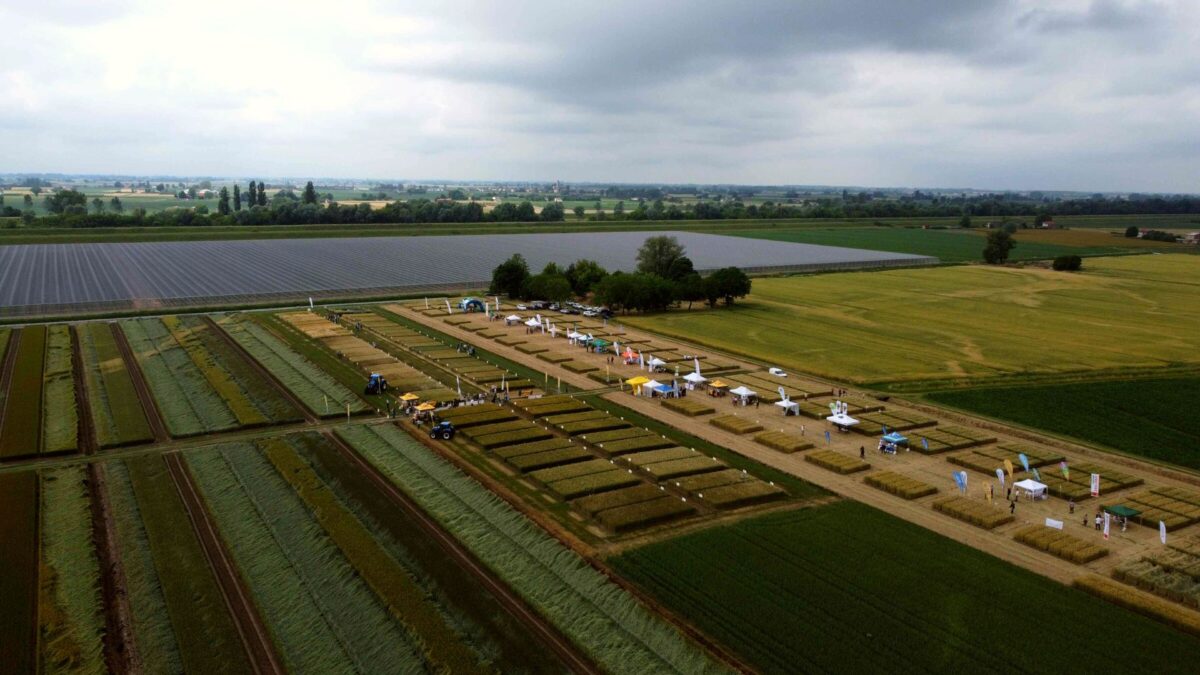Consorzi Agrari d’Italia, Società Italiana Sementi (SIS) and IBF Servizi have put forward a strategy that could increase Italian wheat production by 12%, with a 9% saving for farmers compared to traditional farming costs. After a year of experimenting with new technical solutions, the results are encouraging.
On 31 May, there was a tour of some of the more than 30 trial fields of the agricultural supply chain of the BF Spa Group, based at Poggio Renatico (FE). The scheme is managed by Consorzi Agrari d ‘Italia, SIS – Società Italiana Sementi and IBF Servizi.
The “Days in the Field 2022” event was attended by more than 700 farmers, concerned about the future of grain growing, and burdened by the increasing costs of energy and of traditional fertilisers, in short supply on the market.
The difficult global situation, made even worse by the problem of drought, could have a significant effect on yields from Italian wheat fields. Market prices will probably be average for the time of year, but production costs for farmers will be more than double those of 2021.
Initial forecasts indicate a reduction in yield of around 10% in Emilia-Romagna and the Veneto, while the decrease in the central regions could reach 15-20%. The gap widens in the South with an expected 15 to 30% drop in yields, especially in the islands.
CAI, SIS and IBF Servizi presented the results from a year of trials, involving a number of variables: from studies of the soil to a choice of the best seed varieties of durum or soft wheat, and from sustainable forms of crop defence and nutrition to precision farming methods. The technical solutions suggested could increase production of Italian soft and durum wheat by 12%, with a saving of 9% on traditional growing costs while still producing high quality cereals.
The winning combination includes input from SIS, CAI and IBF Servizi, based on genetic research and the latest Agriculture 4.0 technologies.
SIS technicians are confronting the new challenges of climate change, by developing and screening innovative genotypes to suit different pedoclimatic conditions. Meanwhile, CAI is focused on maintaining soil fertility with controlled release nitrogen fertilisers, phosphorus protected from retrogradation, and nitrogen-fixing bacteria. Finally, IBF Servizi is using precision farming techniques, trialled on over 900 thousand hectares. These can help optimise farm resources, in some cases saving up to 15% of fertiliser use, or up to 20% of water on irrigated crops. The three types of interventions will provide a more important and efficient way to increase yields than traditional methods of cultivation.


